At Charles Sturt University, tackling sustainability issues in Australia is at the heart of everything we do. Just take a walk around our campuses. Look up and you’ll catch sight of solar panels across the roofs of many buildings. We’ve installed more than 14,000 solar panels across our campuses – roughly the size of three football fields – saving carbon dioxide equivalent to that produced by 1,000 typical Australian households. But what about living sustainably while you’re at university? Can you make a difference? Answer: of course you can, and we’ll help you make it with some living sustainably tips.
Sustainability at the heart of your study
First up though, you won’t just be living sustainably at Charles Sturt, you’ll be studying it too. Because we’ve integrated sustainability into all our degrees.
One of our graduate learning outcomes, alongside being a global citizen and being aware of First Nations culture, is to reduce our impact on the planet. We want all our graduates – from dentists to engineers, podiatrists to historians – to consider the social, economic and environmental impacts of what they do and be equipped to act as agents of positive change.
Here’s Charles Sturt’s Dr Jonathon Howard to explain.
“At Charles Sturt we think about what type of future citizens we are creating. Our students will be the leaders and influencers of tomorrow. They’ll play key roles in society. That’s why we have graduate learning outcomes.
“I can think of hundreds of sustainability issues – war, fire, flood, pandemic – that we’ve experienced recently which highlight our need to be geared towards creating a world worth living in for tomorrow. We’ll need leaders who can make good judgements about our future.
“So, not only will our students graduate with a degree, they will also leave the university with a set of skills ready to respond to the wider community’s needs and the uncertain future graduates face.”
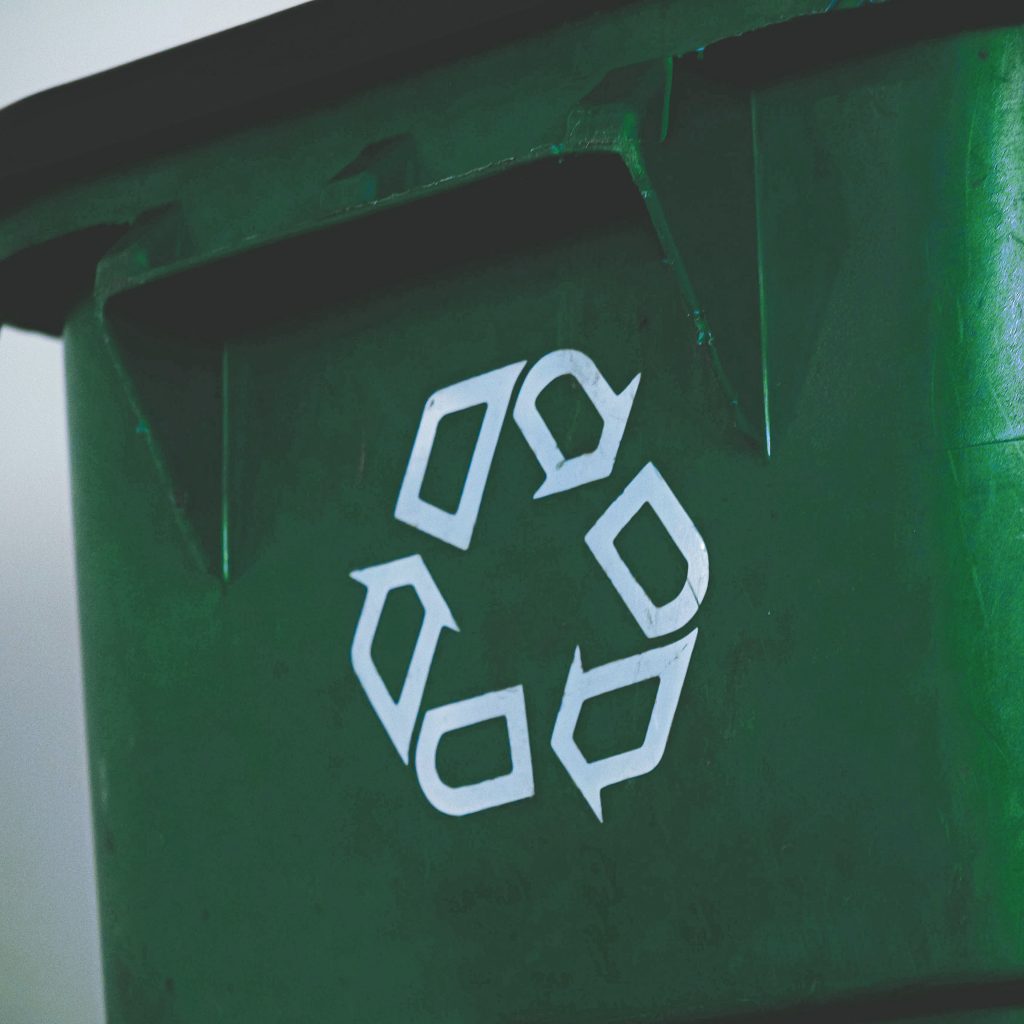
Recycling
So, now you know your study is ‘green’, let’s get on to some living sustainably tips.
First up, let’s talk bins. Red bins for landfill, yellow bins for recycling. It pays to learn the details of what goes where because often, waste companies will dump the contents of a recycling bin if there are non-recyclable items in it. Make recycling a habit and it becomes second nature. You’ll be making a difference without even having to think about it!
And speaking of recycling, if you’re going to get a new laptop or desktop, let us know; we can refurbish your old one and pay it forward with our partnership with the Cerebral Palsy Alliance.
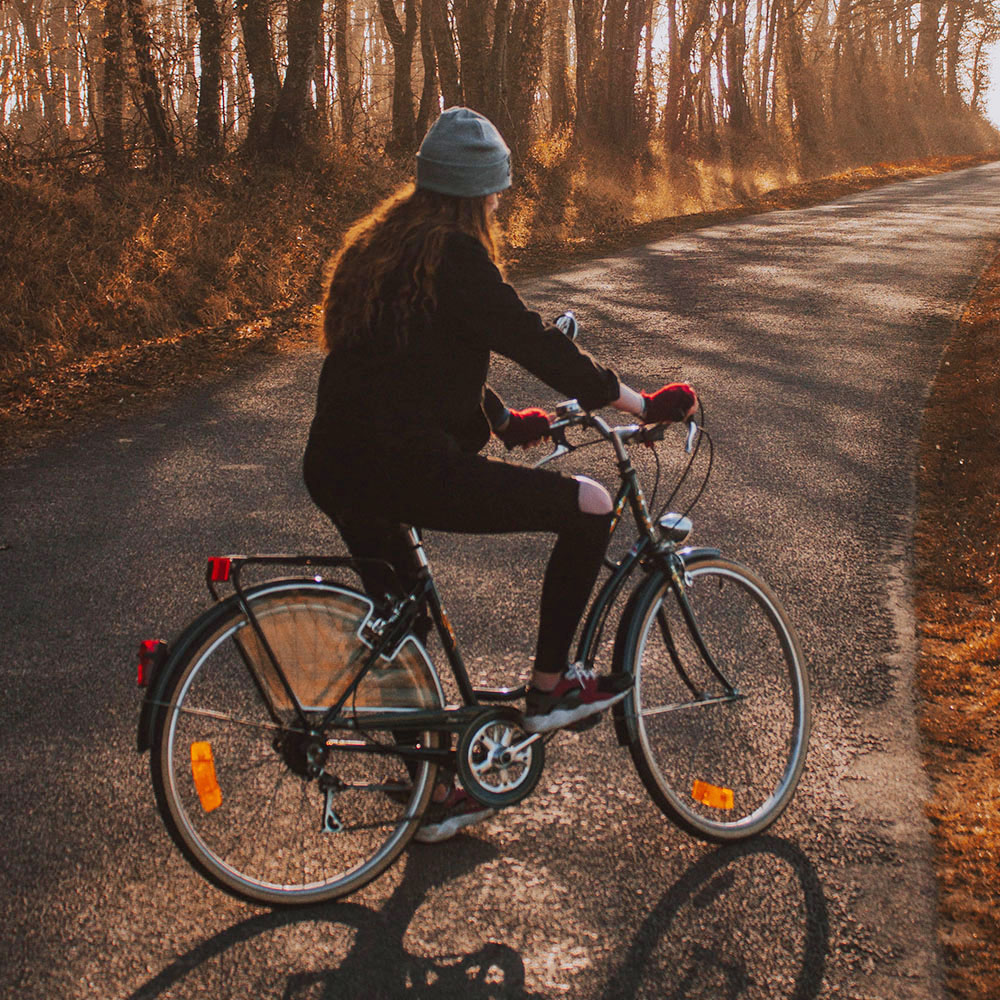
Carpooling/cycling
When it comes to considering how to live more sustainably, taking a look at transport is a good place to start.
Cut down on emissions and wear and tear by carpooling with your mates when you need to go into town or want to explore further afield – you’ll save on petrol costs, too. Even better, for local trips, get a bike. The wind in your hair (well, under your helmet, of course), exercise and doing good for the planet? Yes, please.
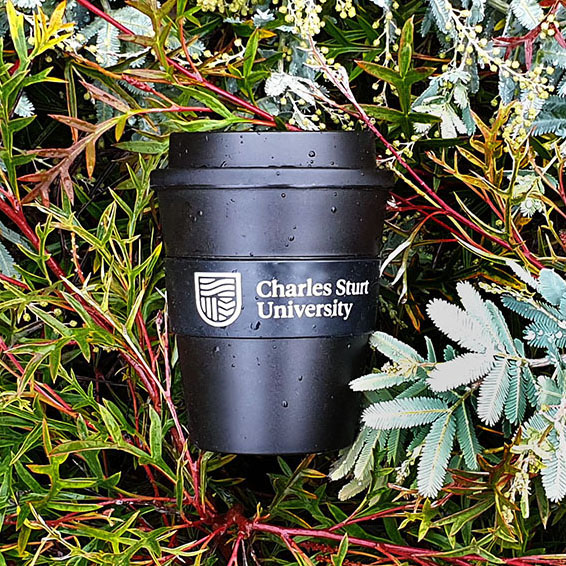
KeepCup and water bottle
Single use plastics are harmful.
According to the non-profit Plastic Ocean, around half of all the plastic produced globally each year – that’s around 190 million tonnes – is designed to be thrown away after just one use. That plastic must go somewhere and, sadly, much of it ends up in the ocean. Google ‘Great Pacific Garbage Patch’ and you’ll see what single use plastic really means.
So, we all need to play a part in saying no to single use plastic.
You can always stay hydrated while on our campuses, there’s plenty of places to fill up your water bottles with cold, filtered water – and you don’t need to keep buying new bottles. We also promote the use of KeepCups for your coffee, that you can reuse. And reuse. And reuse.
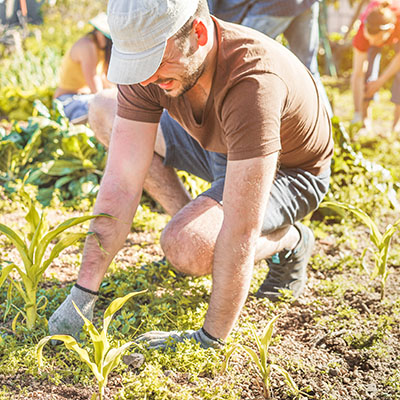
Get involved in green projects
There are always green projects running on campus that you can get involved in.
We have regular tree-planting days where you can help ramp up the native biodiversity on campus. And we have projects that get funding each year around things like water conservation, ecology and animals. You can get involved to do your bit – and they look great on your CV.
For example, there’s a project on the Bathurst campus to increase numbers of pollinator insects. It’s in partnership with Planting Seeds – a Sydney-based non-governmental organisation fostering environmental sustainability and biodiversity in the urban and peri-urban environment. The project aims to research, build and evaluate the impact of a low-water native garden for local pollinators.
What’s more, if you have a great green idea for a sustainability project on campus, you can apply for a grant to make it happen. We’re all ears!
Making sustainable choices
Living sustainably at university is easy – especially when you study at the university with sustainability at its heart. So, ready to make a difference? All you’ve got to do now is choose your course – secure in the knowledge that whatever you’re interested in, at Charles Sturt you’ll study greener.

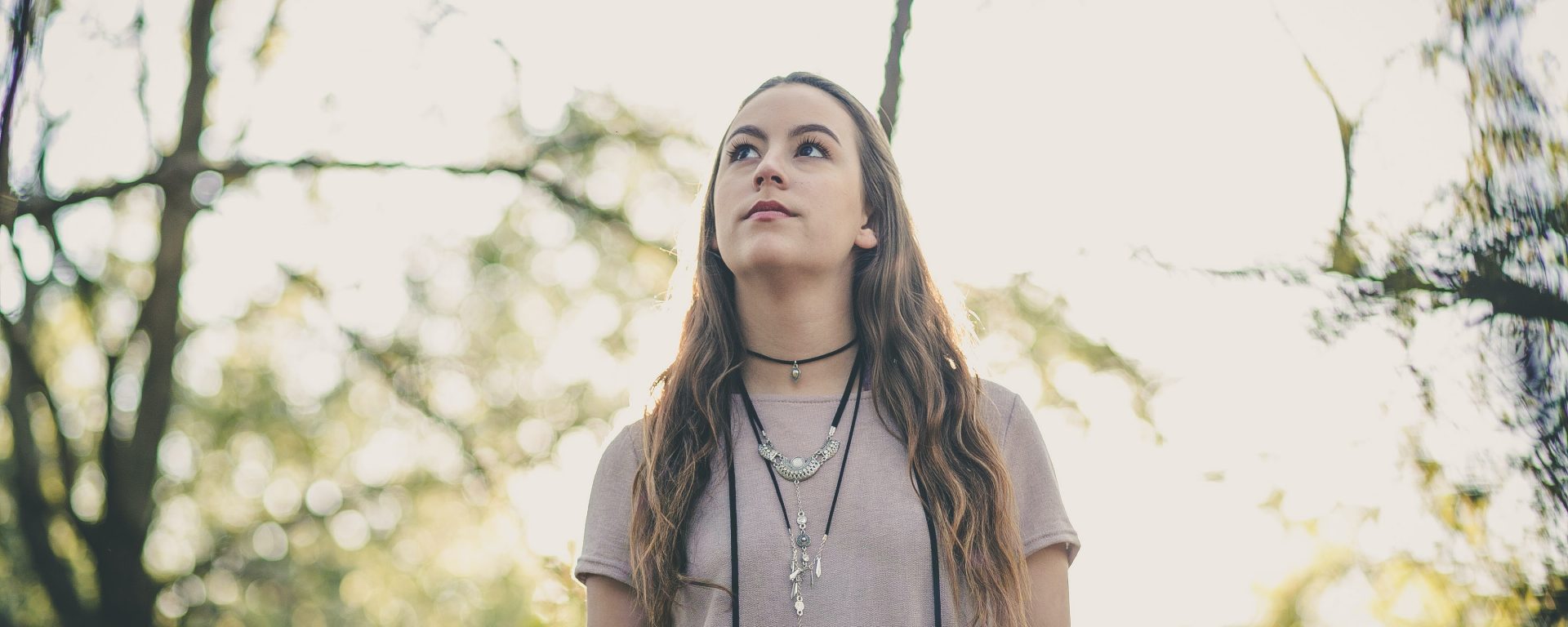
You must be logged in to post a comment.